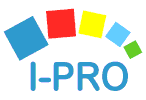ABILITA2 || TROCAR || MeuSIX || KRG-DHIS || ARCA || AMS || ABILITA ||RARE || IKR || EuResist || SecurePhone
euresist projectJanuary 2020 - on 27-28 January was held in Moscow the conference organized by the CARE project for sharing the experiences of the common projects between EU and Russia about HIV, HCV and Tubercolosis. The conference was attended by many scientists from Russia and Europe and by representatives of EU Commission and Russian ministries.
(Conference Programme) January 2019 - Rome - The consortium of the CARE project has held in Rome the Kick Off meeting, as reported by Sanità24; more than 30 people coming from Europe and Russia were involved, under the coordination of Euresist GEIE and with the Scientific Leadership of the the CHIP, Centre of Excellence for Health, Immunity and Infections of Copenhagen.
(This project has received funding from the European Union’s Horizon 2020 research and innovation programme under grant agreement No 825673) August 2018 - The EU Commission funded the Project CARE, coordinated by EURESIST Network GEIE. CARE brings together distinguished scientists and highly representative networks in the European region, including Russia, in the fight against
HIV/TB/HCV. CARE will produce high-level research outputs during the two years of the project timeframe. The project EuResist (Integration of viral genomics with clinical data to predict response to anti-HIV treatment, IST-2004-027173) has been funded by the European Commission in 6th Framework Program. It was successfully completed in September 2008.
Its results have been transferred to Informapro and are: • The largest HIV resistance database available. EuResist’s first key achievement was the creation of the EuResist Integrated Data Base (EIDB), which is now the largest database of HIV genotypes and clinical response available. It integrates data from the project partners (ARCA from Italy, AREVIR from Germany and Karolinska from Sweden), and has recently expanded with data coming from Luxembourg, Belgium (Leuven) and Spain (Badalona). The data collected include demographics, viral loads, CD4 counts, treatment history and HIV genotypes for more than 40.000 patients. • EuResist Resistance prediction system. Three engines have been developed and found to perform similarly but not identically in validation tests. Techniques such as Support Vector Machines, Fuzzy logic, Case Based Reasoning, and Random Forests have been investigated, while finally all of the three engines have ended up with using Logistic Regression models for the classification of the therapies as successes or failures. However, the three engines use different approaches to derive such models from the EuResist database plus derived features providing extra information not directly contained in the standard datum. |
Euresist WEBSITE
PARTNERS Informapro Srl Karolinska Institutet - SWEDEN Max Planck - GERMANY UniKoeln - GERMANY UniSiena - ITALY IBM Research Lab - ISRAEL MTA KFKI Reszecske-ES Magfizikai KutatoIntezet - HUNGARY Kingston University - UK |

